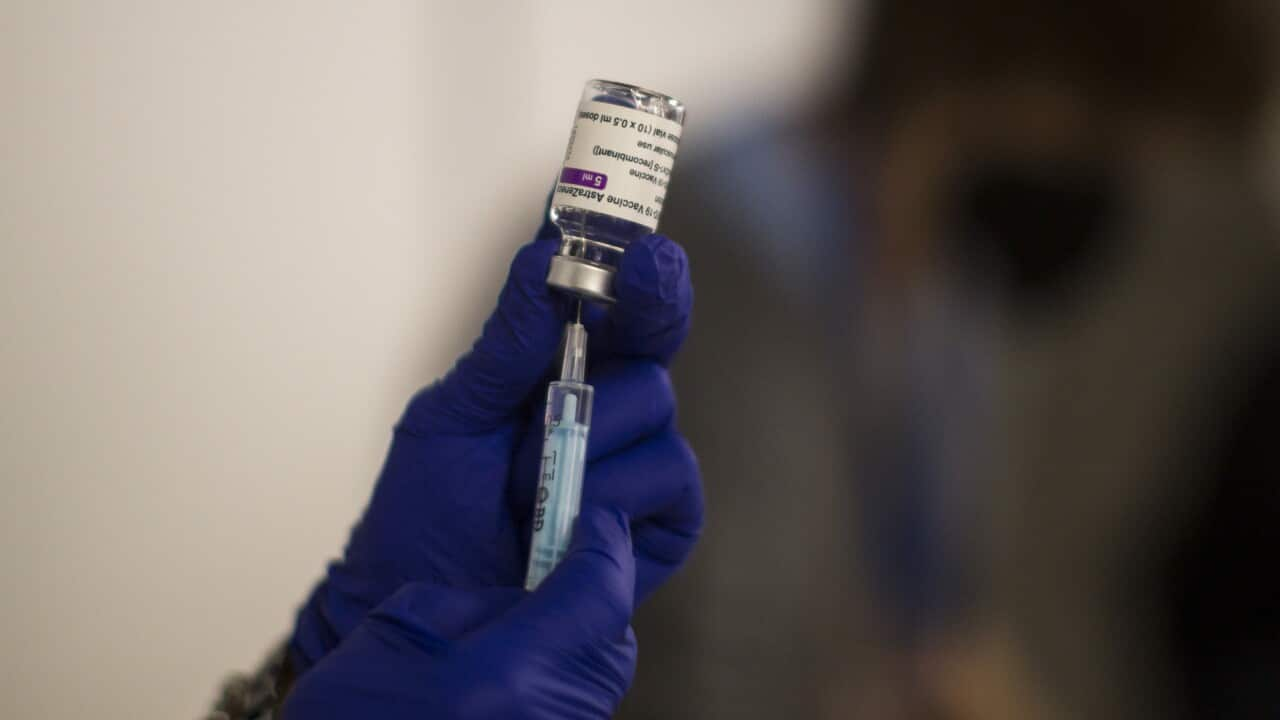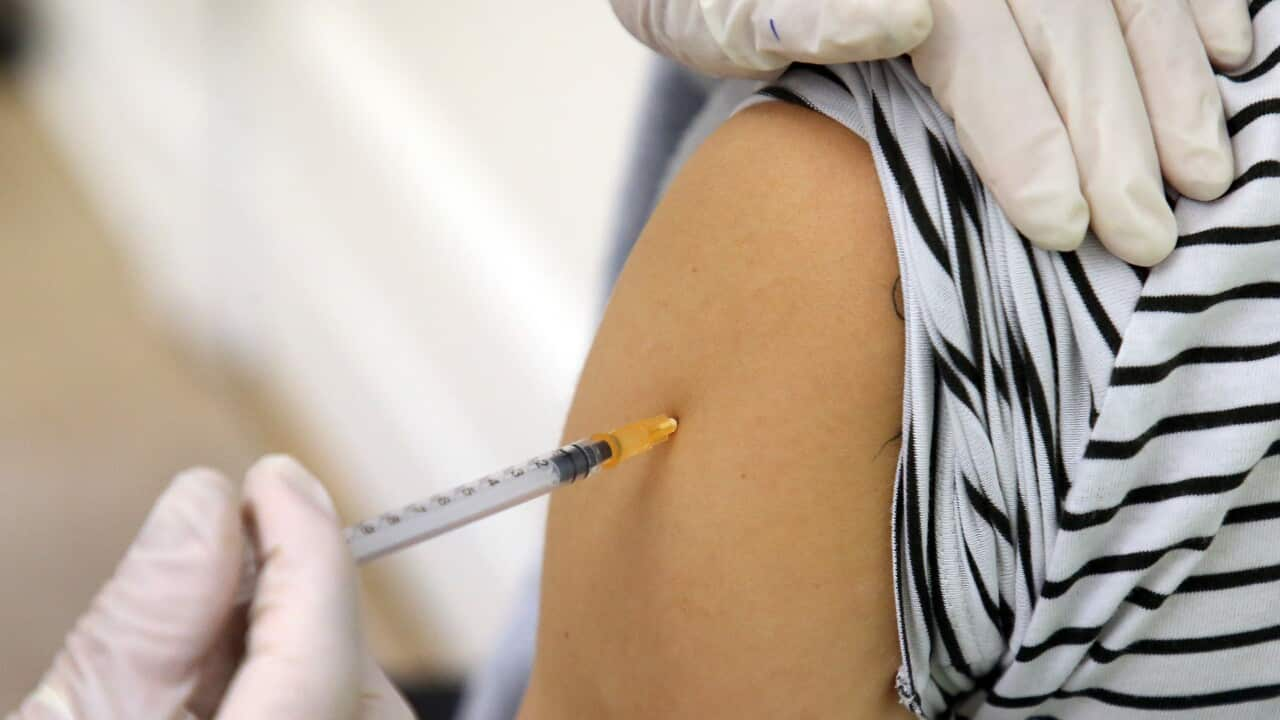AstraZeneca's COVID-19 vaccine has been withdrawn globally after the company admitted it could cause adverse side effects.
AstraZeneca admitted the claims in court documents lodged in February.
Why has it been withdrawn?
On 30 April, AstraZeneca conceded the vaccine, sold under the name Vaxzevria, can cause fatal blood clots and low platelet counts, also known as thrombosis with thrombocytopenia syndrome, or TTS.
The admission came through court documents in a UK class action lawsuit which sought £100 million ($190 million) in compensation for almost 50 victims of AstraZeneca vaccine side effects.
What does it mean for Australia?
In 2023, the federal government announced the AstraZeneca COVID-19 vaccine would no longer be available in Australia from 21 March.
There was a link found between the vaccine and a rare but serious side effect.
Health Minister Mark Butler said: "AstraZeneca took a decision to withdraw its first generation COVID vaccine from Australia quite some time ago, so it hasn't been available here in Australia for a considerable period of time, and that's no surprise really."
"It was the first generation vaccine and has been superseded by a range of newer vaccines that particularly targeted the newer variants," he said.
How common were those side effects in Australia?
Infectious diseases physician Dr Paul Griffin said: "This was a very rare clotting phenomenon that was associated predominantly with the first dose of that AstraZeneca vaccine and that led to some significant clotting events, and in rare cases was associated with deaths."
"In Australia, I believe we had 11 deaths that were associated with that vaccine, and eight of them were actually from that clotting phenomenon, TTS. So while of course, a devastating consequence in those that did get it, it is important to point out that it's very rare," he said.
TTS was very rare in Australia with government estimates suggesting it affected around two in 100,000 people aged 60 or older, and around two to three in 100,000 people under 60 years of age.
Could I be affected by these side effects?
Symptoms typically occurred between four and 42 days after a first dose of the AstraZeneca vaccine.
So Griffin says there's no reason for anyone to be worried about those extreme side effects now.
"We know that inflammatory reactions to vaccines, so things like myocarditis with other vaccines or TTS with AstraZeneca occurred predominantly quite early following receipt of the vaccine," he said.
"People don't need to worry if they had the vaccine when it was being used in this country — there's no risk of any ongoing effects, particularly relating to TTS."
People don't need to worry if they had the vaccine when it was being used in this country — there's no risk of any ongoing effects, particularly relating to TTS.Dr Paul Griffin, infectious diseases expert
What has AstraZeneca said?
In its announcement, AstraZeneca said Vaxzevria saved more than 6.5 million lives during its first year of use alone.
It says as multiple COVID-19 vaccines have since been developed, there's been a decline in demand for Vaxzevria — and it has therefore initiated the withdrawal of marketing authorisations within Europe.
What happens now?
The vaccine will first be discontinued in the European Union, with applications lodged for other countries.













